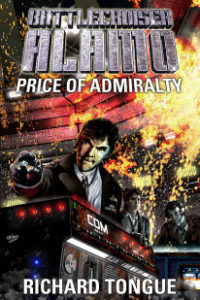Colbert was right on the money when he joked that Fire and Fury has spurred a new generation of book clubs. I’ve inadvertently taken on the task of annotating the living hell out of the book. It started as a joke among friends, but now we have a thrice-weekly discussion group complete with supplementary materials and literary analysis. It’s reading gone mad.
Risk Management?
The effort has squeezed out my efforts to read just about anything else. I’m a few pages short of finishing Come an’ Get It, a non-fiction exploration of the old West’s chuck wagon cook. I also intended to read The Power this month, but that’s not happening. The Power, by Naomi Alderman, is a spec fic novel about an alternate reality in which women become supernaturally strong out of the blue. The way Fire and Fury took over my reading list eerily mirrors how a whole year of my life slipped away in 2017. I barely wrote a single novel, but I pounded out hundreds of thousands of words.
Everyone else has already punched out enough articles on the danger of inviting the 24/7 news cycle into your life. There’s nothing I can add to the conversation about retaking control, about joining movements, or about protecting yourself.
What I can say, though, is that the surge in discourse is the best outcome I could’ve hoped for from the book. It’s been about two weeks and people are still discussing Fire and Fury. The upcoming midterms should, I hope, sustain our renewed interest in politics (and that this was sparked by a book that reads more like a longform TMZ article just cracks me up).
The Audience
One thing I do wonder about is who Wolff’s intended audience is. If I’ve learned anything from novels, it’s that readers need occasional reminders. We often read while distracted; we might read sections and then put the book down for quite a while; maybe we’re not necessarily strong readers; or perhaps we’re not well-versed in the subject. Readers forget hooks, miss lines, or don’t recognize the significance of some breadcrumb the author placed. Writers have to jog their audience’s memory from time to time.
Well, Wolff repeats his central theses multiple times each chapter, often to excess. He links any bit of evidence right back to restatements of those ideas — incompetence, mismanagement, disorganization, narcissism — and then repeats those restatements again, but adorned with theory-crafting the next time around. The level of repetition is something you’d expect from a work aimed at a novice audience, whether low reading skill or barely initiated into political reporting.
But then he busts out the big guns. Bête noire. Persiflage. Hortatory. I won’t lie, I’ve learned some new words — I’m not a proud person. Then there’s the sentence structure. It’s complex to the point of madness. Don’t hold your breath when you start any given line here. Given the story’s timeline and the January release, I can only imagine that he had a limited time to pitch the book, sign contracts, write it, and ram it through fact checking, so no one had time to untangle Wolff’s wicked web of clauses. Some editors need to chase Fire and Fury into an alley and beat half the commas and em dashes out of it. I won’t even address the typographical errors. But that leads me back to my question: who was the central audience? New Yorker readers like me, who have some manner of memory impairment?
